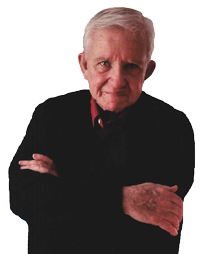Kurt Vonnegut’s 1970 review of Dan Wakefield‘s Going All the Way

Dan Wakefield is a friend of mine. We both went to Shortridge High School in Indianapolis—where the students put out a daily paper, by the way. His publisher is my publisher. He has boomed my books. So I would praise his first novel, even if it were putrid. But I wouldn’t give my Word of Honor that it was good.
Word of Honor: Mr. Wakefield has been a careful and deep author of nonfiction for years—Island in the City, Revolt in the South, The Addict…The Atlantic Monthly gave him an issue all his own for Supernation at Peace and War. Word of Honor: He is also an important novelist now.
Going All the Way is about what hell it is to be oversexed in Indianapolis, and why so many oversexed people run away from there. It is also about the narrowness and dimness of many lives out that way. And I guarantee you this: Wakefield himself, having written this book, can never go home again. From now on, he will have to watch the 500-mile Speedway race on television.
This is a richer book than Portnoy’s Complaint, with wider concerns and more intricate characters, but the sexual problems are much the same. Wakefield shows us two horny young Hoosiers, and it is easy to imagine their meeting Alexander Portnoy in a Howard Johnson’s—midway between Indianapolis and New York. If they were candid with one another, they would admit that they were rotten lovers, and they might suppose mournfully that rotten lovers were not welcomed by women anywhere.
Going All the Way is a period of piece, incidentally—set in ancient times, at the close of the Korean War. And every book is a period piece now—since years or even weeks in American no longer resemble each other at all.
• • •
This book is full of belly laughs, but I am suspicious of belly laughs as entirely happy experiences. The only way to get a belly laugh, I’ve found, is to undermine a surface joke with more unhappiness than most mortals can bear.
After a series of low-comedy sexual failures, for instance, one of Wakefield’s heroes cuts his wrists lightly with a razor blade, “…so that rivulets of blood began to flow together, forming a thick little puddle.” That isn’t funny, and the scene becomes less funny as it goes on.
He started smearing the blood over his face and over the front of his torn shirt, like an Indian painting himself to prepare for a ceremony—a battle, a blessing, a death.
So much for sexual comedy. Nobody dies in the book, but a lot of people would like to, or at least wouldn’t mind. Wakefield’s reportage of life in Middle America, as one might expect, is gruesomely accurate and enchanting. His sex-addled fools tool their parents’ automobiles through a vast pinball machine whose bumpers and kickers are strip joints and taverns and gas stations and golf driving ranges and hamburger stands. They see whorehouses, which, it turns out, have been closed for years.
They return home periodically to their smug and vapid parents, grumpily declining to say where they’ve been. Their stomachs, already churning with hamburgers and beer, twist even more grotesquely when their parents want to know when they are going to settle down to nice jobs and nice wives and nice houses in Indianapolis.
Finally—there is a tremendous automobile crash. And, finally again, the wildly sexy novel isn’t a sex novel. It is really about a society so drab that sex seems to the young to be the only adventure with any magic in it. When sex turns out to be merely sex, the young flee to more of the same elsewhere—and they play dangerous games with, among other things, automobiles and razor blades.
How old are Wakefield’s protagonists? About the same age Ernest Hemingway was when he returned to Middle America as a quiet, wounded, authentic hero of World War One.
